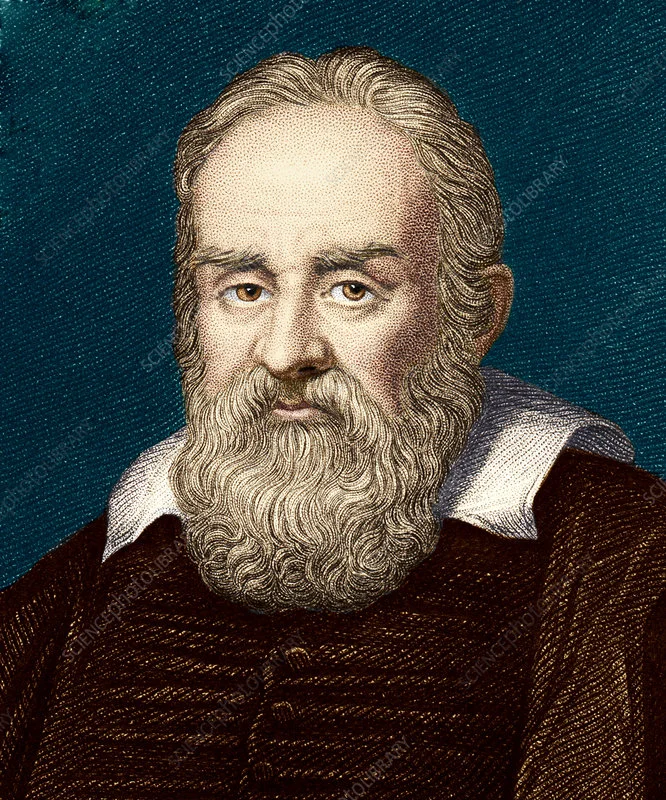Galileo Galilei Biography : Galileo Galilei, born on February 15, 1564, in Pisa, Italy, stands as one of the most pivotal figures in the history of science. His contributions to physics, astronomy, and the scientific method have profoundly influenced our understanding of the universe and laid the groundwork for modern science. Born into a family of modest means, Galileo was the first of six children to Vincenzo Galilei, a musician and scholar, and Giulia Ammannati. His early education began in Pisa, where he demonstrated an aptitude for mathematics and natural philosophy.
Galileo’s academic journey took him to the University of Pisa, where he initially studied medicine but soon shifted his focus to mathematics and physics, fields that captivated his interest. His early work involved studying motion and the properties of falling bodies, challenging the long-held Aristotelian beliefs that dominated the scientific landscape of the time. One of his most famous experiments involved dropping spheres of different weights from the Leaning Tower of Pisa, demonstrating that they hit the ground simultaneously, thus debunking the notion that heavier objects fall faster than lighter ones.
In 1589, Galileo was appointed to the chair of mathematics at the University of Pisa, where he began to develop his theories on motion and inertia. His work during this period laid the foundation for his later discoveries and established him as a leading figure in the scientific community. In 1592, he accepted a position at the University of Padua, where he would spend the next 18 years. It was here that he made some of his most significant contributions to science, including his studies on projectile motion and the development of the law of falling bodies.
Galileo’s innovations extended beyond theoretical physics; he also made significant advancements in technology. He improved the design of the telescope, allowing him to make groundbreaking astronomical observations. In 1609, he turned his enhanced telescope toward the heavens and made several revolutionary discoveries. He observed the moons of Jupiter, which he named the Medicean stars in honor of his patrons, the Medici family. This discovery provided strong evidence against the geocentric model of the universe, which posited that the Earth was the center of the cosmos. Galileo also studied the phases of Venus, the rings of Saturn, and the craters of the Moon, all of which further supported the Copernican heliocentric theory.
Despite his scientific achievements, Galileo’s advocacy for heliocentrism brought him into conflict with the Catholic Church. In 1616, the Church declared the Copernican theory heretical, and Galileo was warned not to promote it. However, he continued to support heliocentrism in his writings, culminating in the publication of “Dialogue Concerning the Two Chief World Systems” in 1632. This work, presented as a discussion between proponents of the geocentric and heliocentric models, was perceived as an attack on the Church and its teachings.
In 1633, Galileo was tried by the Roman Inquisition, found “vehemently suspect of heresy,” and forced to recant his views. He was sentenced to house arrest, where he spent the remaining years of his life. During this time, he continued to write and conduct experiments, producing his final major work, “Two New Sciences,” which focused on kinematics and the strength of materials.
Galileo Galilei passed away on January 8, 1642, in Arcetri, near Florence. His legacy endures, as he is often referred to as the “father of modern science” for his contributions to the scientific method and his insistence on empirical observation and experimentation. His work paved the way for future scientists, including Isaac Newton, and fundamentally changed humanity’s understanding of the universe. The impact of Galileo’s discoveries continues to resonate in the fields of physics, astronomy, and beyond, making him one of the most influential figures in the history of science.
Galileo’s life and work exemplify the spirit of the Scientific Revolution, characterized by a shift from reliance on ancient authorities to a focus on observation, experimentation, and the questioning of established beliefs. His courage to challenge the status quo and pursue the truth, despite the personal and professional risks, serves as an enduring inspiration for scientists and thinkers around the world.
Check this out for more such biography


